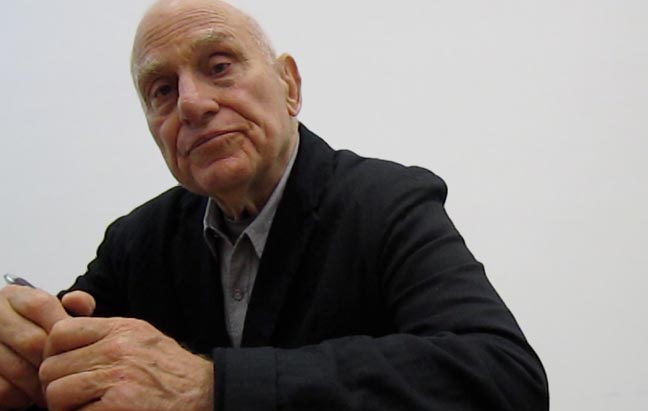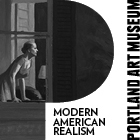
|
||
|
Portland art blog + news + exhibition reviews + galleries + contemporary northwest art
|
||
Reacting to Serra  Richard Serra (photo Paul Middendorf) Many will react to Richard Serra's diatribe last night as just another old man talking about how he had to walk 25 miles in the snow in order to get some lead to melt and throw in a corner. That would be a mistake though. I've always found Serra to be very thoughtful and persuasive. He's very deliberate and forms his thoughts cautiously when you speak to him.... he also takes stock of you. That and he's arguably the world's greatest sculptor and is still making work at the top of his game. In particular, his emphasis on there needing to be a marginalized subculture has my attention. It echoes Degas' view that an artist creates for only a few people within their immediate circle. I feel he is right... somehow art has become too popular in New York or other art capitals to trust that which it often presents as "hot". A career today is often more buzz than one of piercing substance, which separates itself from the fray to distill its point. Perhaps that is why many artists come to Portland or other non art centers... they can pursue idiomatic aims without necessarily being rushed to market or fit into a mode? Certainly the Whitney Biennial this year points to a major crisis, which can be a good thing for art. Outsiders treat art as a market... but it's not like other commodities. Serra blaming the internet itself doesn't hold water though. The internet is a tool like anything else though he is right about proxy images rather than the experience of the work which does fuel a lot of marketing on a mass scale... making all trends and mediums immediately digestible around the world. That isn't bad but it should be telling us that that which eludes the digital camera has special value right now... that which isn't easily disseminated. The part about Philip Glass and Donald Judd being crucial as older mentors to play off of and develop in contrast to is also a crucial point. In a way they vetted each other. Artists need both continuity and difference in a collegial setting... not ubiquity and rampant careerism. At the end of Robert Hughes first edition of Shock of the New he concluded by railing against how art had become a vocation rather than an avocation. I'll never forgive him for leaving it out of subsequent editions, because it is crucial. Art will go on but it needs to look deeper and harder in places where the world is being redefined on human terms. Yes, Portland is one of those places, we suspend reality in favor of ideals to create a capital of conscience (we have about 10-50 artists, depending on your standards and interests who should really be looked at much harder... some already are showing nationally/internationally. Also, I think that it must still be possible in New York... just perhaps not in the early developmental stage? What I like about Richard Serra is how one knows exactly where he stands, he's both thoughtful and challenging and I'm so glad he's speaking up because I frequently refer to Serra, Robert Irwin, Pipilotti Rist and a few others as artists who always insist on the ineffable. As artists and curators we should be thinking about the big subjects and the way art is one of the few ways in which we can grapple with the difficult to define edges today. That's all Serra seems to be bemoaning... the smallness of artistic ambitions in an ever larger art world. Posted by Jeff Jahn on April 29, 2014 at 13:42 | Comments (0) Comments Post a comment Thanks for signing in, . Now you can comment. (sign out)
(If you haven't left a comment here before, you may need to be approved by
the site owner before your comment will appear. Until then, it won't appear
on the entry. Thanks for waiting.)
|
| s p o n s o r s |
 |
 |
 |
 |
 |
 |
 |
 |
 |
 |
 |
 |
 |
 |
 |
 |

|
Site Design: Jennifer Armbrust | • | Site Development: Philippe Blanc & Katherine Bovee | |

